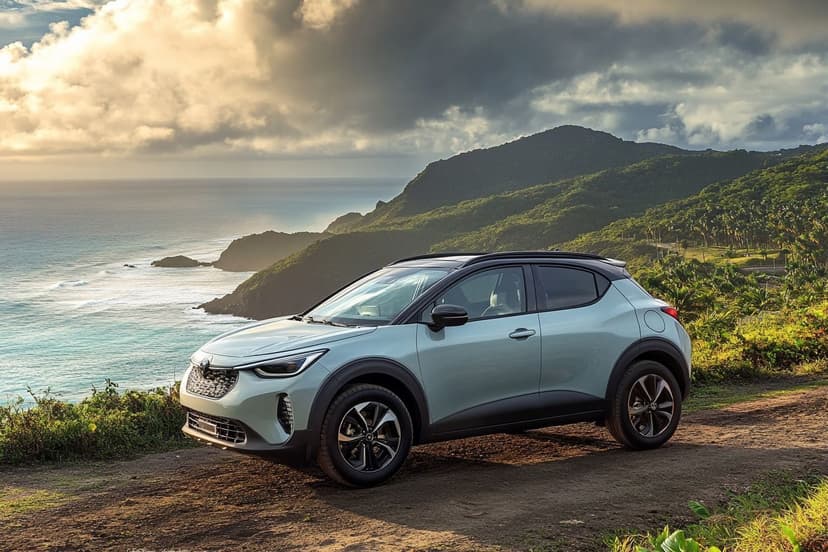The Evolution of Electric and Hybrid SUVs in the United States
Emily Johnson • March 6, 2025 • 4 min
The automotive industry is undergoing a remarkable transformation, with electric and hybrid SUVs becoming increasingly prominent in the United States. These vehicles offer advancements in fuel efficiency and plug-in hybrid technology, paving the way for exceptional performance. Explore the benefits of hybrid vehicle maintenance and financial incentives that enhance the appeal of owning these innovative vehicles.

Advancements in Electric and Hybrid SUV Technology
The landscape of electric and hybrid SUVs is experiencing a revolutionary transformation, fueled by technological advancements that promise to redefine performance and efficiency. One of the most significant breakthroughs is in battery technology. Modern lithium-ion batteries now offer higher energy density, which translates into longer ranges and shorter charging times. This advancement means that future hybrid SUVs, such as the Toyota RAV4 Prime, will be able to travel further on a single charge, making them more practical for everyday use as well as long-distance travel.
In addition to battery improvements, the integration of regenerative braking systems has significantly enhanced energy efficiency. These systems capture and store energy that would otherwise be lost during braking, thus extending the vehicle's range and improving overall fuel economy. Furthermore, sophisticated onboard computers manage energy flow with precision, optimizing how and when the electric motor and internal combustion engine are used.
Manufacturers are also making strides in weight reduction through the use of lightweight materials such as carbon fiber and aluminum. These materials not only improve efficiency by reducing the vehicle's overall weight but also enhance performance and handling. The result is a new generation of hybrid SUVs that are not only environmentally friendly but also fun to drive.
Benefits of Owning a Hybrid SUV
Owning a hybrid SUV offers numerous benefits that extend beyond the obvious environmental advantages. One of the most compelling reasons to consider a hybrid is its enhanced fuel efficiency. Hybrid SUVs typically achieve better miles per gallon than their traditional gasoline counterparts, which translates into significant cost savings on fuel over the vehicle's lifespan.
Reduced emissions are another critical advantage. Hybrid SUVs emit fewer pollutants, contributing to cleaner air and a healthier environment. This reduction in emissions is particularly important in urban areas where air quality is a growing concern.
Financial benefits also play a crucial role in the increasing popularity of hybrid SUVs. With the rising cost of fuel, the efficiency of hybrid vehicles provides considerable savings. Moreover, states like California offer rebates and incentives that further enhance the economic appeal of these vehicles, making them a smart choice for budget-conscious consumers.
Maintenance and Longevity of Hybrid SUVs
Hybrid SUVs come with unique maintenance requirements that, when properly managed, can lead to a longer vehicle lifespan. One of the essential aspects of maintaining a hybrid SUV is regular battery checks. While hybrid batteries are designed to last, they do require periodic inspections to ensure they are functioning at optimal capacity.
Routine maintenance such as oil changes, tire rotations, and brake inspections are also critical. However, because hybrid SUVs use their electric motor for some of the braking, wear and tear on the brake pads is often reduced, potentially extending the intervals between brake services.
Another aspect of hybrid maintenance involves the cooling systems for both the battery and the engine. Ensuring these systems are functioning correctly is essential for maintaining vehicle performance and preventing overheating. Regular servicing by technicians trained in hybrid technology is recommended to address any specific needs your vehicle may have.

Financial Incentives for Hybrid Vehicle Owners
To encourage the adoption of hybrid vehicles, the US government offers several financial incentives. These incentives can make purchasing a hybrid SUV a more compelling choice for many consumers. For instance, federal tax credits are available for qualifying hybrid vehicles, potentially reducing the upfront cost of purchase.
Some states further sweeten the deal with additional benefits such as rebates, tax credits, and even exemptions from certain fees. For example, certain states allow hybrid vehicles to use high-occupancy vehicle (HOV) lanes, even with a single occupant. These perks can significantly enhance the convenience and affordability of owning a hybrid SUV.
Moreover, some insurance companies provide discounts on premiums for hybrid vehicle owners, acknowledging the reduced risk and lower environmental impact associated with these vehicles. By taking advantage of these financial incentives, consumers can enjoy the benefits of hybrid technology while also making a financially savvy investment.
Conclusion
The future of electric and hybrid SUVs in the United States looks promising, driven by continuous technological advancements and growing consumer interest in sustainable transportation options. With improved performance, enhanced efficiency, and a range of financial benefits, hybrid SUVs represent a smart choice for modern drivers. As you consider your next vehicle purchase, explore the hybrid options available and discover how they can meet your needs while contributing to a more sustainable future. Whether it's through reduced emissions, cost savings, or the latest in automotive technology, hybrid SUVs are set to play a pivotal role in the automotive industry for years to come.
Disclaimer: All content, including text, graphics, images and information, contained on or available through this web site is for general information purposes only. The information and materials contained in these pages and the terms, conditions and descriptions that appear, are subject to change without notice.